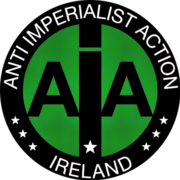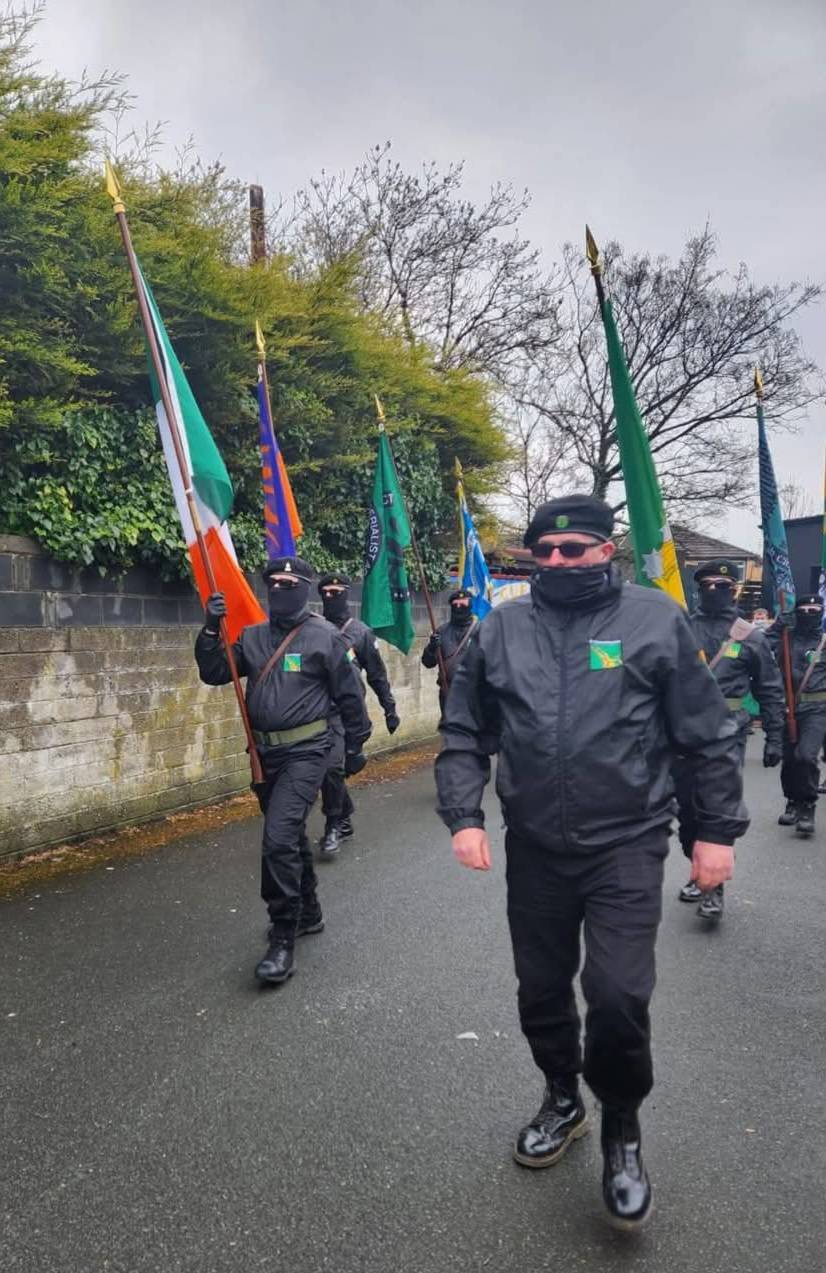On Saturday April 19, the annual County Wicklow Socialist Republican 1916 Commemoration took place in Bray.
Led by the Socialist Republican Colour Party, scores of Revolutionary Socialist Republicans and a number of international Guests made their way from St. Peters Church to the grave of the great Socialist Republican Leader Vol. Seamus Costello.
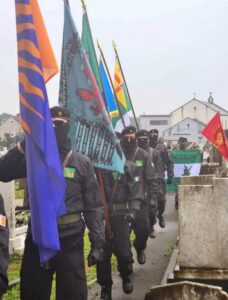
As the Parade passed the monument dedicated to all who have paid the ultimate sacrifice for Irish Freedom, the parade stopped for a minute’s silence and the lowering of the Tricolour in Republican Salute.
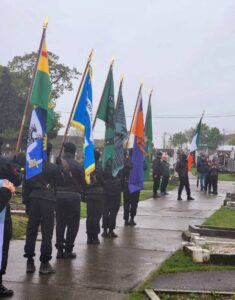
At the grave of Costello, the crowd was welcomed and reminded that the 1916 Rising demonstrated the only successful route to Irish National Liberation, namely Revolutionary Armed Struggle and continued with a defiant and clear reading of the 1916 Proclamation.
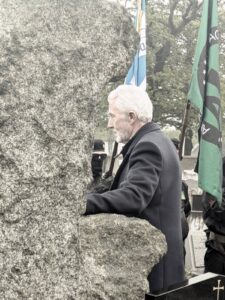
A rousing rendition of the Foggy Dew was then delivered to the crowd before veteran Socialist Republican and Chairperson of the Seamus Costello Memorial Committee addressed the crowd, outlining the importance for Republicans to continue the Revolutionary Struggle for Freedom and Socialism in Ireland without compromise and by any means necessary.
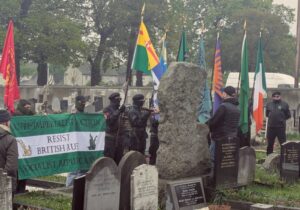
A minute’s silence in honour of the men and women of every generation who have fought and died for Irish Freedom was then held as the Colour Party lowered the flags in tribute and veteran Socialist Republican Jim Byrne laid a floral tribute on behalf of the Revolutionary Irish Socialist Republican Movement.
The main speaker was then introduced on behalf of a new generation of Revolutionary Wicklow Republicans to deliver what was an inspiring main oration which is published in full below:
‘• It is a privilege to be asked to speak at a commemoration for the socialist republican revolutionary Seamus Costello who was assassinated by counter revolutionaries in Dublin, October 5th 1977. Today we commemorate Costello during a significant weekend for republicanism, the anniversary of the 1916 Easter Rising. When asked to speak at this commemoration of such an accomplished and prominent socialist republican I wondered what I could illuminate in such a rich and active political life. Costello, in his orations and his actions was a reader and carrier of history, a tradition bearer. In many ways this is the first rule and lesson of republicanism, to carry on through the victories and sacrifices that accumulate into the defiant spirit of national liberation and sovereignty that grips the heart of young revolutionaries. And so I speak to you all today as a socialist republican from Wicklow, a political descendent of Costello’s tireless work and indeed other republicans from the rank and file of Wicklow’s history: Michael Dwyer, Anne Devlin, Máire Comerford. His comrades who are here today teach this lesson to us daily, that being steeped in our republican history is not just out of remembrance but renewal.
• As someone who was born and raised in the North Wicklow area, the history of national liberation in Co. Wicklow is often marred and obscured by the high concentration of settler colonial architecture across the county. Living and growing up in a state committed to British imperialist brainwashing, it took many years for me to see my home county fully illuminated in the revolutionary history it is steeped in.
• This is seeing the Wicklow Mountains not in its desolate beauty but as strategic vantage point for the United Irishmen during the 1798 rebellion, this is travelling through Aughrim and thinking of Anne Devlin remaining silent under the pressure of British torture to protect her republican comrade Robert Emmett, or indeed retracing the early childhood steps of Seamus Costello on Old Connaught Avenue, Bray. Costello described Co. Wicklow as a microcosm of all of Ireland, a county which shows the markings of British settler colonialism across the landscape in the form of ‘grand houses’ (an teach mhór) which many to this day are preserved and venerated, Powerscourt, Killruddery, russborough, tinakilly etc. As the role of these houses have moulded into the shifted economic landscape of the free state, their role disguised under the guise of bourgeois fantasy now rather than good old fashioned grotesque extravagance, they still symbolise the dispossession and material inequality apparent across the country.
• Despite the attempts to whitewash the history of Wicklow into a romantic vision of subliminal violence and control, we as republicans see the full history within the land that is held hostage. This was apparent to Costello in his 1966 Bodenstown speech: “The lesson of history shows that in the final analysis the robber baron must be de-established by the same methods that he used to enrich himself and retain his ill-gotten gains, namely, force of arms.” (p.33) When I read over Costello’s words, each time something new strikes me, and in this instance I am struck by how Costello’s surroundings of Co. Wicklow would inform his observations. His legacy as a socialist republican is without measure, from the border campaign, organising tenants associations, founder of the IRSP. But for a republican like myself from Wicklow he teaches us that national liberation begins right on your doorstep, that the great actions of heroes gone before us are grounded in their local engagement and developing a mass line. Teaching us that the strictures of imperialism and capitalism are a brittle strength that are no match for the defiance and will power of the socialist republican tradition he carried and sacrificed his life for.
Saor Éire Anois. Beir Bua’
The event was then brought to a close with amhrán na bhFiann
